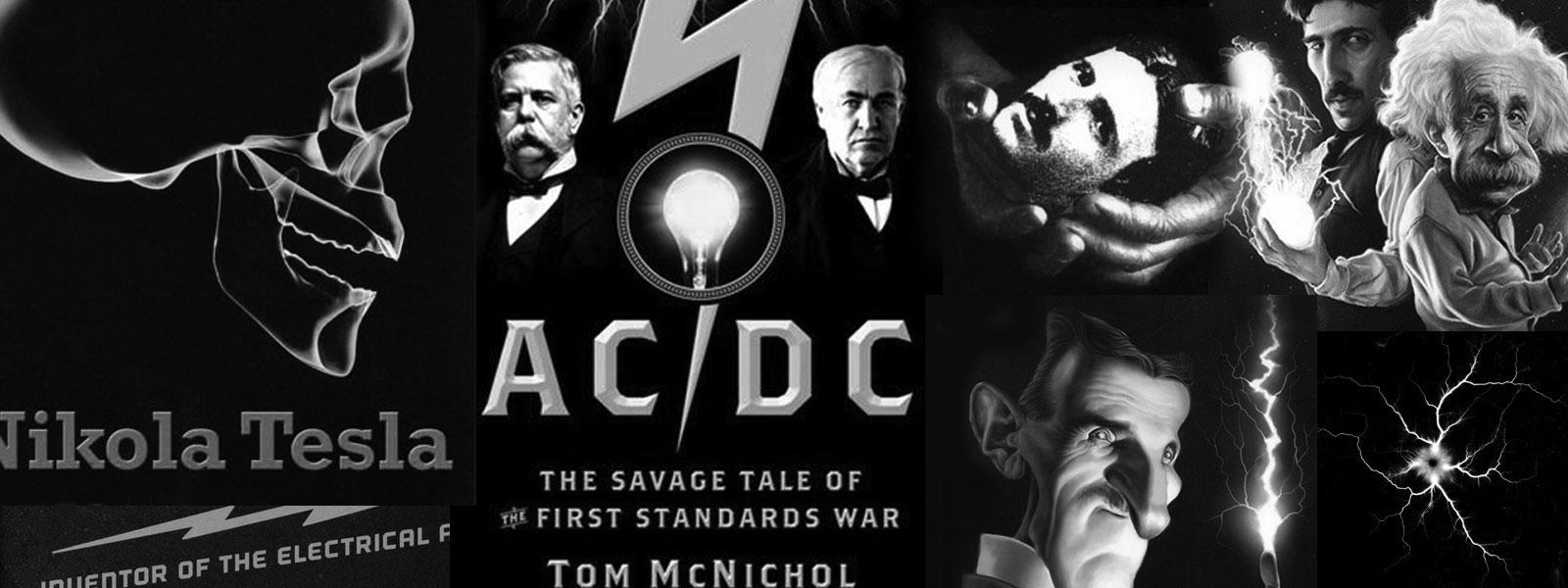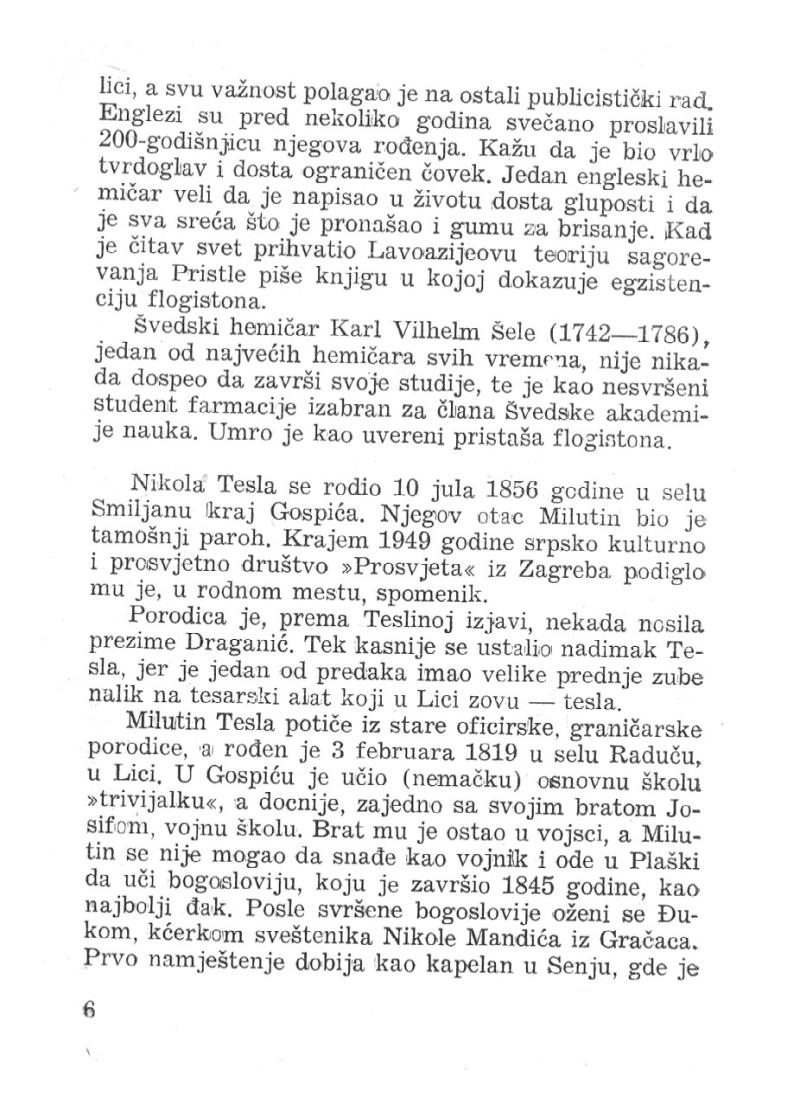
Nikola Tesla Books
faces, and he placed all the importance on other journalistic work. A few years ago, the English celebrated the 200th anniversary of his birth. They say that he was a very stubborn and quite limited man. An English chemist says that he has written a lot of nonsense in his life and that he is lucky that he also found an eraser. When the whole world accepted Lavoisier's theory of combustion, Priestley wrote a book in which he proved the existence of phlogiston.
The Swedish chemist Karl Wilhelm Schele (1742â 1786), one of the greatest chemists of all time, never managed to finish his studies, and as an incomplete pharmacy student, he was elected a member of the Swedish Academy of Sciences. He died a staunch supporter of phlogiston.
Nikola Tesla was born on July 10, 1856 in the village of Smiljan near GospiÄ. His father Milutin was the parish priest there. At the end of 1949, the Serbian cultural and educational society >>Prosvjeta << from Zagreb erected a monument to him in his birthplace.
According to Tesla's statement, the family used to bear the surname DraganiÄ. Only later did the nickname Tesla become established, because one of the ancestors had large front teeth resembling a carpenter's tool, which in Lika they call - tesla.
Milutin Tesla comes from an old officer's, frontier family, and was born on February 3, 1819 in the village of RaduÄ, in Lika. In GospiÄ, he studied at a (German) elementary school >>trivial<<, and later, together with his brother Josif, at a military school. His brother remained in the army, and Milutin could not cope as a soldier and went to PlaÅ¡ki to study theology, which he graduated in 1845 as the best student. After completing the seminary, he married Duka, the daughter of priest Nikola MandiÄ from GraÄac. He got his first appointment as a chaplain in Senj, where he
